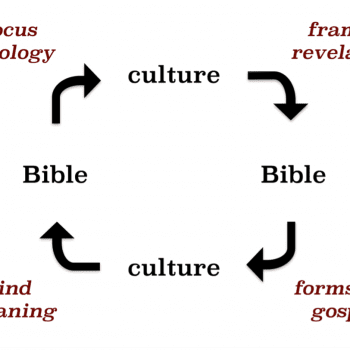I have a dilemma (one I wish more people faced along with me). Perhaps you can help.
Over the past 30 years, theologians and pastors have engaged in a heated debate. By and large, the controversy concerns this question: Is justification a doctrine about salvation or the church?

Protestants traditionally stress the former: justification concerns how people are saved from sin. The key contrast is between works and faith.
The “new perspective of Paul” (NPP) tends to emphasize the latter, that the doctrine is about who belongs in the church and how to recognize them. Justification passages first concern ethnic or national identity––Jew and Gentile.
In many circles, you must pick a side in order to be theologically kosher. This is my problem.
Both groups at times deem me a bit suspect. You see, I hold that Paul’s comments on justification are about salvation but not foremost about how individuals get saved; instead, Paul rebukes ethnocentric social divisions in order to explain who can be saved.
Just recently, someone reviewed my work and highlighted my subtle agreement with N. T. Wright (a more conservative voice among those associated with the NPP). The reviewer said that many evangelicals would not welcome this part of my writing.
Reviews must be brief and are no place for expounding nuance; however, I knew his comments would be read by some as a signal that I affirmed the NPP, including its more “social” view of justification. The problem is simply this––I don’t.
My Critique of the “New Perspective on Paul”
In Saving God’s Face, I am quite critical of the “old perspective” on Paul. I have a few reasons. One is simply this: those I wrote for tend to be more traditional evangelicals. Perhaps, because people tend to divide others into two groups––those who are “for me” or “against me”, readers overlook ways that I challenge common versions of the NPP.

Justification does concern salvation, not merely church unity. However, I explain in Saving God’s Face that Paul rebuts an ethnocentric/nationalistic view of salvation (espoused by his Jewish contemporaries). His primary focus is not whether or not individuals “earn” salvation via good moral works. He says that we are saved through faith, without regard for our national/ethnic background.
Gentiles do not have to become Jews in order to be saved. As a result, there are “social” implications (e.g. church unity).
In short, the “old perspective” rightly sees that the problem concerns salvation. The “new perspective” adds a bit more precision. Paul’s discussion of justification corrects ethnocentrism/nationalism.
Paul emphasizes who can be saved (NPP) by explaining how people are saved (the OPP question). He addresses ethnicity and salvation.
A Spectrum Doesn’t Have Sides
A color spectrum doesn’t have sides; it has extremes. Greens do not have two sides. They have varying shades of yellow and blue. In the yellow and blue world of theological debates, people sometimes look at me like Sam who serves a plate of green eggs and ham.
Whatever you bent, I urge you to do two things.
1. See others on a spectrum. Do your best to find what is praiseworthy about other “shades” of paint. Where are other people right?
2. Incorporate that insight into the way you read and talk about Scripture. (This point is often neglected.)
It is not humble to admit someone else is right but not change your perspective and practice.
When talking about a problem and its solution, the “middle way” is not always right. Nevertheless, it is always worth exploring some sort of middle path.
I urge brothers and sisters to consider whether, practically speaking, they tend to assume only two ways of seeing a problem––their way and an unorthodox way. Be generous and not suppose that others with different views must hold to an extreme perspective.
To modify James’ exhortation: Be slow to suspicion, be quick to listen. After all, “wisdom is justified by her deeds” (Matt 11:19).













